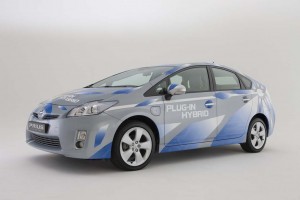
When the Prius plug-in comes to market, in 2012, Japanese buyers will be able to link it to the home.
Toyota is releasing a new system, dubbed Smart Center, that is says will reduce energy usage at home while making it easier to charge one of the maker’s upcoming battery-electric vehicles.
Smart Center, one of the first so-called “smart grid” systems, could cut energy consumption in a home by as much as 75%, the maker claims.
The technology will be available in Japan, where Toyota is already in the housing business. It is unclear whether it will make the Smart Center available in the U.S. or other parts of the world, but there are a number of other companies, including software giant Microsoft, that are coming up with similar technologies that let consumers see where energy is going in their homes and offer a way to reduce usage.
The timing of the Toyota Smart Center launch isn’t random. It debuts just as the maker gets ready to bring its first plug-in electric vehicle to market. A version of the Toyota Prius, it is already in fleet testing around the world and will make a retail debut in 2012.
About the same time, a pure battery-electric version of the RAV-4 crossover vehicle will go on sale. The public will get a first look at that model at next month’s Los Angeles International Auto Show.
The Toyota home automation system will provide extensive information about how energy is being used in a home and display that data on a television screen or smartphone, where a homeowner can interact with the Smart Center with a remote app.
The system is designed to automatically shut down electric or electronic appliances and devices when they aren’t in use. And Smart Center will be able to decide when rates are lowest – in a home that qualifies for an adjustable rate plan – in order to charge a vehicle like the Prius plug-in at the lowest cost.
Toyota says the new Smart Center will only work with its own electric vehicles. But several makers, including Nissan, with its Leaf battery-car, and Chevrolet, with the Volt plug-in, are developing remote control apps of their own. These will not permit control of home electric systems but an expanding range of dedicated home automation technology is expected to become available in the U.S., as well as Japan, over the next several years.
